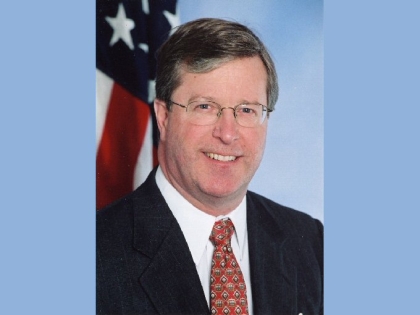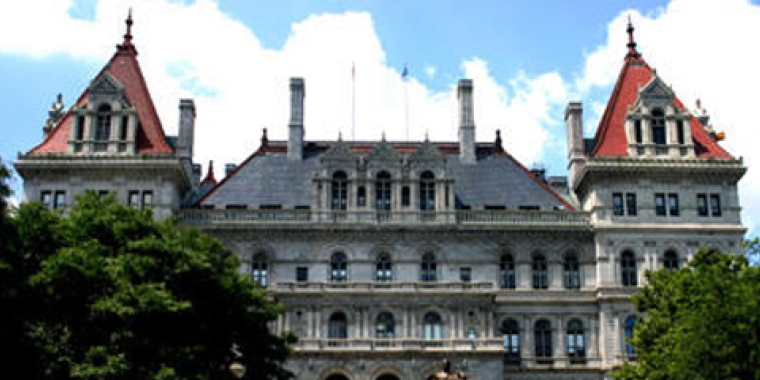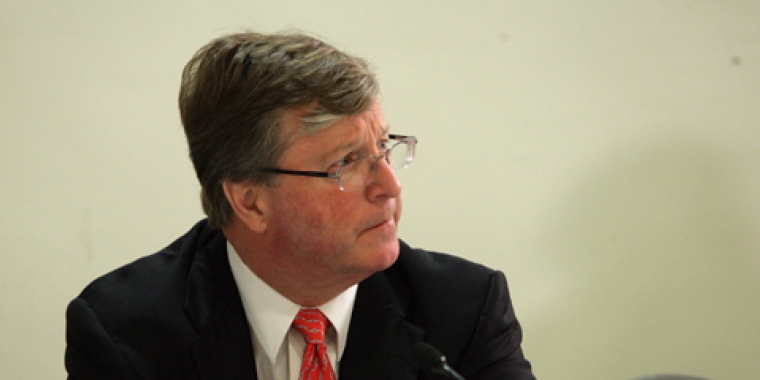
Where's Rural New York's Voice?
George Winner
August 25, 2010
-
ISSUE:
- Agriculture

It’s been a long struggle to raise the state Legislature's awareness of traditionally upstate, small city, rural issues, but over the past two years the challenges for rural legislators have become more and more acute. We’ve seen it time and again in the ongoing battles over the state’s tax policies, economic development priorities, infrastructure allocations and in so many other ways.
So it’s going to remain one of the constant demands of every upstate legislator to remind the downstate, New York City-based leaders who currently control New York government that our state is largely defined by rural regions and the future of these rural communities is fundamental to statewide strength and well-being.
It’s a daunting task. Rural New York's population of 3.5 million is relatively small and dispersed compared to the 15.5 million people who live in urban areas, and this disparity is sharply reflected in the state Legislature, where only approximately 31 out of 212 legislators currently represent rural regions.
It was approximately 25 years ago when the Legislature first established what became known as the Legislative Commission on the Development of Rural Resources, commonly called the LCRR. For most of its existence, the LCRR has operated as a joint, bipartisan legislative agency comprised of 10 members of the Senate and the Assembly. It’s helped shaped state laws and policies on a range of issues that particularly impact rural communities: farm and farmland preservation, economic development, broadband access, water quality, education, transportation, and health care, to name a few.
When I was appointed the Commission's chairman in June 2005, and served in that capacity until 2009, I valued this opportunity to help address rural needs here in the Southern Tier-Finger Lakes region and all across New York. I was grateful to be joined in this important work by colleagues from both political parties. We sought to renew the Commission's work in raising awareness of rural issues within the Legislature.
In many ways, we stood as a last bastion of concern. The Commission’s work remained focused on two overriding goals:
1.) Raise awareness. The Rural Resources Commission developed a valuable working partnership with Cornell University, a national leader on rural affairs, to advance what became known as the "Rural Visioning Project." We worked together to identify the challenges and opportunities facing rural New York in the decade ahead and held a series of Rural Listening Sessions with rural leaders and citizens throughout upstate New York. The Rural Visioning Project proposed an ambitious and exhaustive task, but one that we believed was absolutely essential to the future of rural communities and the quality of the Empire State's culture and economy. It shouldn’t be forgotten; and
2.) Promote action. From 2005 to 2009, Commission members worked hard to advance a "Rural New York Agenda" addressing a range of concerns many rural communities are still struggling to confront, such as the recruitment and retention of volunteer firefighters and other emergency services personnel; how to ensure that rural New York communities find a niche in New York State's emerging high technology industry; a lack of services for an ever-growing population of senior citizens; and planning and land use decisions which threaten some of the traditional foundations of rural New York, especially agriculture. These issues and many others remain ongoing, evolving ideas and concerns and when the next Legislature takes office in 2011, there will hopefully be those who will seek to revive an active, dedicated Rural New York Agenda.
Most importantly, the Commission served as the voice of rural New York in state government.
Unfortunately over the past two years, as state government’s focus has turned decidedly more urban, I’ve witnessed the work of the LCRR be diminished and overlooked. But the blueprint remains. In the end, the only meaningful Rural New York Agenda will be one that's undertaken on a bipartisan, cooperative basis and, hopefully, an effort will be made to rebuild this spirit of cooperation and enact meaningful new programs and services.
-30-
Share this Article or Press Release
Newsroom
Go to NewsroomIs Your Word Good New York?
August 10, 2010

Business Friendly?
August 2, 2010

Column from the Capitol: "Many Studies, Less Action"
August 2, 2010

Keep shining reform spotlight on Medicaid
July 21, 2010
